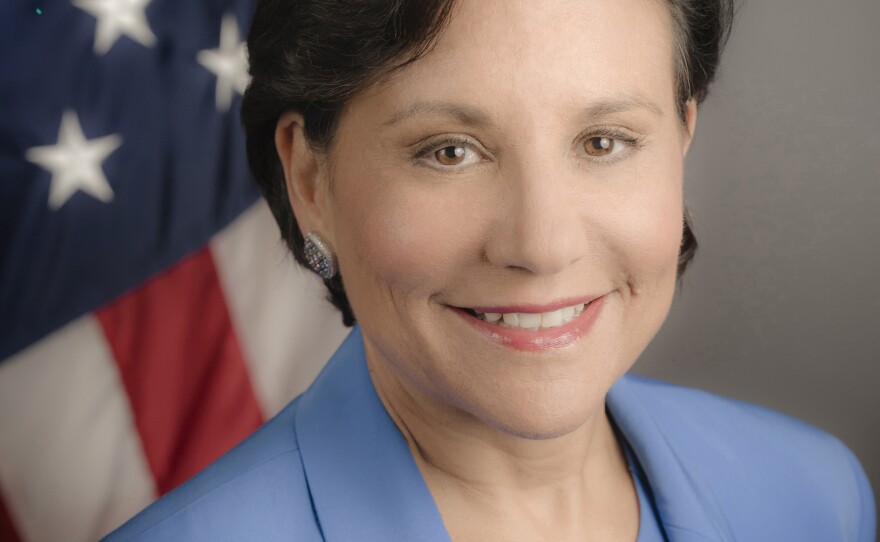As the 20th anniversary of the North American Free Trade Agreement approaches, business and government leaders from Mexico, the U.S. and Canada met in San Diego this week to take stock of the region's progress and its future. U.S. Commerce Secretary Penny Pritzker attended and spoke with KPBS reporter Jill Replogle.
Jill Replogle: What are some of the lesser-known successes of NAFTA?
Penny Pritzker: The thing we ought to be celebrating is the fact that the North American platform, the trade between our three countries – Canada, the United States, and Mexico – is over $1 trillion a year. That’s $3 billion a day. Often times we have goods going back and forth across the border multiple times before they're finished. And that’s an enormous success, I think the integration of our three economies.
Replogle: And where has NAFTA not lived up to some of the hopes and promises?
Pritzker: I don’t think about where NAFTA hasn’t lived up. I think about the opportunities for us to grow the relationship between our three countries. And first, one of the most important things we need to do is engage with our stakeholders — the business community. The business community is really pushing our three governments to work together on things like foreign direct investment. How do we encourage innovation? What do we need to do around infrastructure so that goods, services, and people can move back and forth more easily?
Replogle: You mentioned infrastructure. As you know, 9/11 took a huge hit on our local economy here in the border region and across the border. What can and should the federal government be doing to help improve that cross-border commerce and also travel between our two countries?
Pritzker: Well there are a number of things that we can be doing, whether it’s using technology so that we perhaps screen goods once but it’s twice approved. That’s an opportunity that we’re working on. How do we use technology to read your passport more quickly so you can get through the border crossing faster? How do we assure that goods can move more quickly? Do we have enough roads? Do we have enough rail spurs moving across the borders? Bridges… So these are all areas that we’re very focused on trying to get through everyone’s various permitting, get it financed, get done. Because we want goods and services to move efficiently and effectively as well as humans across our borders.
Replogle: Here in the San Diego region and in some other parts of the border region local government and private companies have stepped up to try to fill in some of those gaps. We have plans for a cross-border airport terminal here, and for a new port of entry. What do you think the role of private companies and local government should be in facilitating this cross-border trade and travel?
Pritzker: It takes a partnership of all the stakeholders, and absolutely local governments, as well as private capital. There's a big role to be played. The federal government cannot do it all. And so that’s one of the things that we’re very much working on, and I have the privilege of working on in Washington with my counterparts and other agencies to figure out how to make that move more smoothly.
Replogle: One of the major concerns and figures when NAFTA was being discussed 20 years ago was labor of course. One, that American jobs would move overseas, and two, that there wasn’t a way to facilitate labor across borders. How is that playing out?
Pritzker: You’ve got to look at the amount of trade that we have. We have $1 trillion of trade between the three countries. There are jobs in all three countries that have been created because we’re able to have an integrated supply chain. So this has been a great opportunity for our workforce to grow and for us to capitalize on the real talent in our workforce here in America.
Replogle: Do you see that lack of ability for labor to cross borders as a continuing problem?
Pritzker: Well that’s why I'm hopeful that what we’re going to get is comprehensive immigration reform, which obviously the administration is very supportive of. Studies show it should increase economic growth in this country by 1.4 trillion dollars over the next 20 years. So I think we have enormous opportunity if we can pass comprehensive immigration reform.







